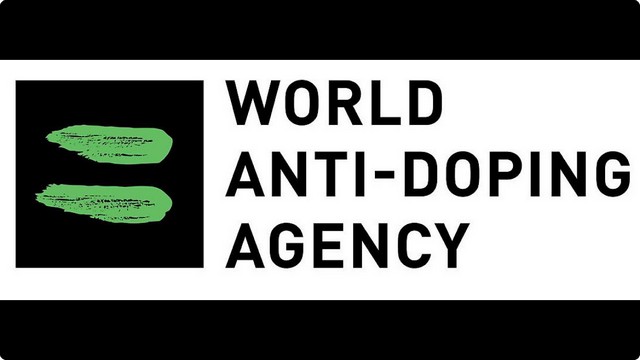By Dr Binoy Kampmark
The disclosure of confidential material has its own sometimes fraught ethics. When it comes to medical information, assumptions abound that confidentiality comes first. Not, however, in international sports, a notorious field where the corrupt rub shoulders with the desperate; where perspectives of the supposedly level playing field meet unevenness and disadvantage. In such a case, disclosures can be both political and financial weapons.
The hack by the cyber espionage group Fancy Bears of the World Anti-Doping Agency (WADA) data storage system has, to that end, produced a range of reactions. Transparency supporters have given it a good wink and in some cases, even a dismissive shrug. Germany’s discus thrower and 2012 Olympic Champion Robert Harting was content to tweet that, “We don’t hide anything. Go transparency!”
Australian Jock Bobridge, who had been prescribed prednisolone and glucocorticoids over a five-year period, explained that such prescriptions for rheumatoid arthritis were permissible. “Regarding the WADA hacks and ‘leaks’ of my personal information I’d like to make it clear I have no problem with this info becoming public.”[1]
That transparency drum has also been beaten by three-time Tour de France winner, Chris Froome, who insisted that nothing leaked on the issue of taking therapeutic use exemptions was particularly shattering. “I’ve openly discussed my TUEs (therapeutic use exemptions) with the media and have no issues with the leak which confirms my statements.”
Other individuals such as tennis figure Petra Kvitova revealed that she received therapeutic use exemptions (TUEs) for hydrocortisone, and initially the banned anabolic agent DHEA, subsequently revoked by WADA.
The reaction from a spokesperson for two time Grand Slam winner Kvitova and the Czech tennis federation was all anger at the disclosure, arguing that her asthma condition had been “no secret”. “To say that Petra Kvitova suffers from asthma,” shot back Karel Tejkal with highbrow propriety, “is the same revelation as saying she’s won Wimbledon.”[2]
The picture emerging from the disclosure is that of top athletes who have been battling range of illnesses and lingering ailments within various rules of demarcation set out by WADA and general sports officialdom.
Venus Williams, who netted silver in the mixed doubles at the Rio Olympics, could not hide the fact that she was suffering from the energy-draining disease Sjogren’s Syndrome, a condition that necessitated her seeking exemptions. Those exemptions, she explained, had been established by the Tennis-Anti-Doping Program.
Sports officialdom had to race out explanations and clarifications in the wake of the disclosure. After all, athletes had tested positive for an assortment of goodies that may well have fallen foul of the establishment but for the fact that they were permitted by medical certificate. Delle Donne was certainly far from conflicted by this, expressing a round of thanks for the hackers “for making the world aware that I legally take a prescription for a condition I’ve been diagnosed with, which WADA granted me an exception for it.”
The often righteous Australian Sports Anti-Doping Authority (ASADA) similarly noted that various exemptions were bound to be legitimate. “Despite the efforts of the hackers to twist these assumptions to prove foul play, in obtaining a TUE, the athletes have operated entirely within the rules of clean, fair sport.” Various conditions were legitimately treated by TUEs.
Gymnast Simone Biles, to reassure those watching the unfolding saga, insisted that she did “believe in clean sport, have always followed the rules, and will continue to do so as fair play is critical to sport”.
Biles, having tested positive for methylphenidate after four tests conducted on Aug 11, 14, 15 and 16, had been issued certificates from the International Gymnastic Federation for the daily use of the drug in quantities of 15 mg, and therapeutic use over the year period from September 2012.
It is precisely such behaviour that did not impress Russian president, Vladimir Putin. “It seems,” urged Russia’s suspicious leader, “as if healthy athletes are taking drugs legally that are prohibited for others, and people who are clearly suffering from serious illnesses, major disabilities, are suspected of taking some kind of substances and banned from the Paralympic Games.”
The hack has not merely revealed the way transparency can, inadvertently, create an economy of openness in a world that tends to lack it. It also shows the complexity, and unevenness of the drugs regime, where sports figures suffering from illness were still permitted various approved medications to effectively manage impairment and debilitation.
This stands in total contrast to the supposedly “war-like ideology” adopted by anti-doping agencies, which has struck some scholars as being akin to “the public discourse sustaining international efforts against illicit drugs.”[3] False assumptions about fairness in sports and the “level playing field” have been made in such a belligerent quest.
A crude form of social Darwinism has evidently been abandoned in certain, specific instances, where the doctor dispenses the certificate of medical mercy to enable a top performer to continue. Much has been left to WADA to explain in that regard. Such exemptions, in other words, may well be legal, but do they square with the evangelical world of the anti-dope crusader?
Dr. Binoy Kampmark was a Commonwealth Scholar at Selwyn College, Cambridge. He lectures at RMIT University, Melbourne. Email: bkampmark@gmail.com
19 September 2016

